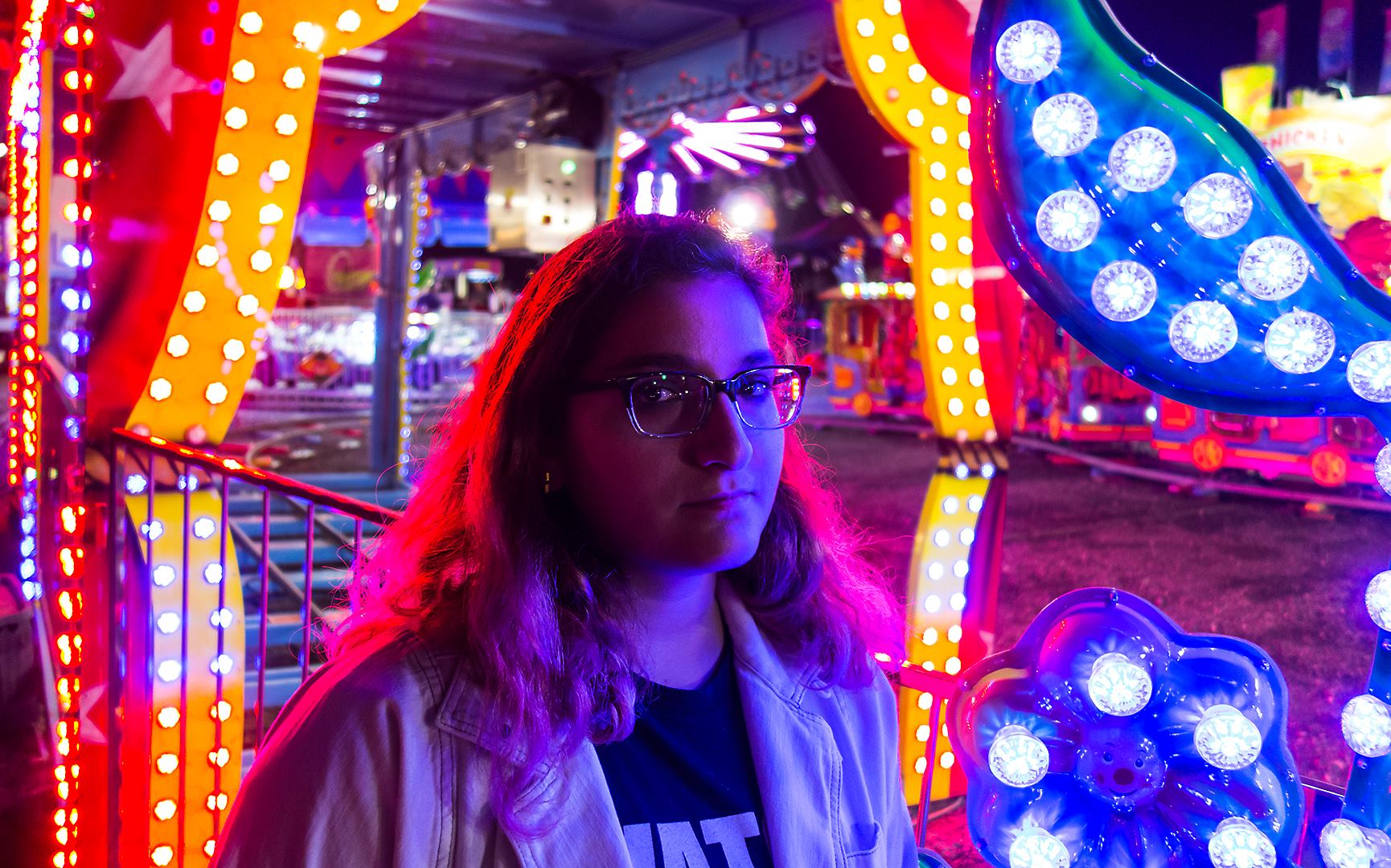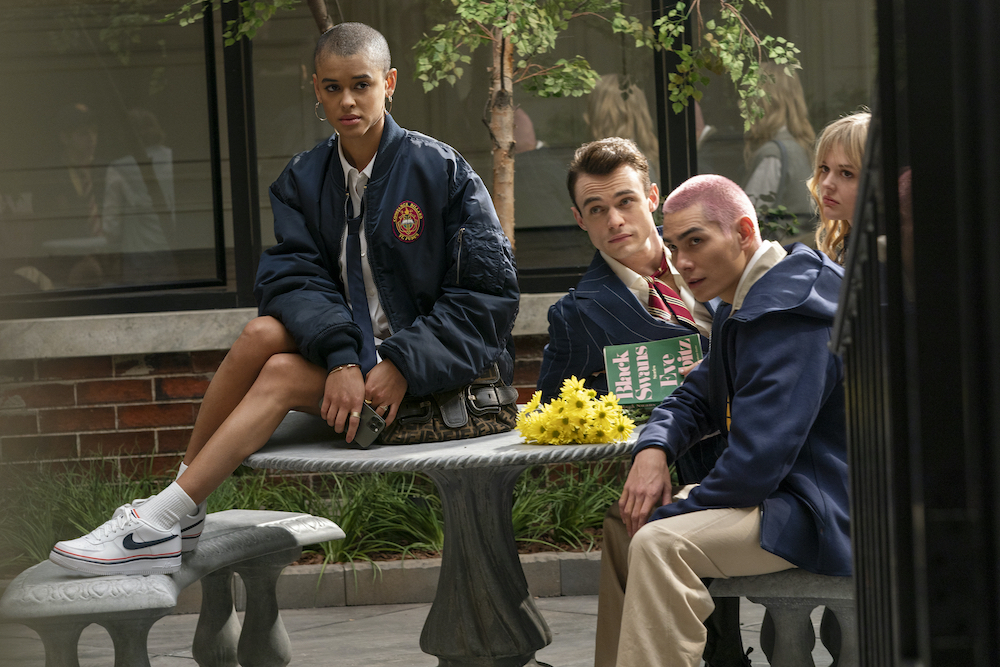When “United States of Al” premiered on CBS, the half-hour comedy series about an Afghan translator who moves to the United States to live with his Marine Corps veteran friend and his family ran into a significant problem early on: How do the limits of “good” representation stifle a story? It’s a question that doesn’t come up that often in shows about white people, still the status quo in pop culture. They can be murderers and drug dealers and corrupt politicians, and we accept all that. The ethical burdens or respectability-politics responsibilities of a show led by a Black or POC lead, some argue, are different. If people from underrepresented communities end up as the primary characters on a show, maybe that show shouldn’t present them in a negative light that could feed into or reinforce certain stereotypes or cliches about that group. Wouldn’t that be harmful?
That’s an argument that can go around in circles depending on what you think representation accomplishes, and whether you think said representation is intended to better the art or intended to assuage audiences. And it’s an argument that impacted “United States of Al,” and now impacts the HBO Max reboot of “Gossip Girl,” premiering on July 8. When the series adapted from novels by Cecily von Ziegesar initially aired on The CW for six seasons from 2007 to 2012, it was harangued over by parents concerned that their teens were watching high schoolers have sex, drink and do drugs, stab each other in the back, and otherwise act like entitled brats. It also became a major phenomenon, although its final unmasking of the titular Gossip Girl stalker disappointed some fans. Teens behaving badly have a long history in pop culture (“The Basketball Diaries,” “Cruel Intentions,” “Twin Peaks,” “Dawson’s Creek” and the entire slate of mid-‘90s WB shows) and “Gossip Girl” was in conversation with those series, and with the selfishness, loneliness, and frivolousness that could consume adolescents with too much money, too much privilege, and too much time on their hands.
All of that speaks directly to this new version of “Gossip Girl,” which has replaced its predecessor’s mostly white, mostly straight cast with a group of more inclusive, queer, and outspoken teens. But diversity, while it may be the bare minimum for progress, does not unquestionably translate into good art, or into good entertainment. Over the four episodes provided for review, “Gossip Girl” struggles to shade in its characters, to outline its narrative stakes, or to make an argument for why it should exist in the first place. The intention here is to emphasize how much the prevalence of social media has changed what we consider “real” and “true,” but the show’s approach of saying the words “my Insta story” every few seconds and then walking back bad behavior through grand “Mean Girls”-like speeches grows irritating (and boring) quickly.

Is this show actually written for teenagers? Maybe in the same way “Riverdale” was—with nonstop millennial and Gen X pop culture references (including a nod to David Lynch) meant to signify these teens’ sophistication. But that adds to the slick, inauthentic feel of these characters and their machinations, which are then undercut again and again by their clouded consciences. “Gossip Girl” simultaneously burns through plot without clarifying these people’s personalities, identities, or lives, and its entire conceit for why Gossip Girl is back in Big Brother form is laughably ridiculous. To be frank, the core concept of this series does not work in the new way imagined by returning executive producer Joshua Safran and returning co-creators Josh Schwartz and Stephanie Savage. “Gossip Girl” thrives on pettiness, mess, and spectacle, and this show’s unwillingness to tarnish its characters makes for stuttered storytelling that, at least during the season’s first four episodes, fails to find its rhythm.
The series begins back at private school Constance Billard, which is now run by Julien Calloway (Jordan Alexander). The junior is a mega-level influencer who receives free luxury goods from myriad designers every single day, who streams on Insta practically every second, and who is well-known enough in Upper East Side social circles that she walks as the closing model for elite fashion shows. She is surrounded by a group of six long-time, also-rich friends: Monet de Haan (Savannah Smith), who does her PR, and Luna La (Zión Moreno), who styles her. Audrey Hope (Emily Alyn Lind) is her most-intimate confidante, and Audrey’s boyfriend Aki Menzies (Evan Mock) is best friends with Julien’s boyfriend, “Prince of New York” Obie Bergmann IV (Eli Brown). Rounding out the group is Max Wolfe (Thomas Doherty), the bisexual bad boy whose primary concern is sleeping with as many people as possible.
Julien is comfortable in her position of power at the top of the pyramid, until someone new arrives at Constance St. Jude’s: freshman scholarship recipient Zoya Lott (Whitney Peak). Newly moved from Buffalo, Zoya is Julien’s half-sister on her mother’s side, and the daughters’ fathers hate each other. Julien’s friends, too, expect Zoya to be enemy No. 1 as soon as she shows up at school or on the steps of the Met, where Julien et al. lounge in their thousand dollar-outfits and pick at lunch (one of a few references to the original show). How can working-class Zoya compare?
Some of these new characters are 2021 spins on preceding “Gossip Girl” types (Max as the new Chuck Bass, Obie as the new Dan Humphrey, Zoya as the new Vanessa Abrams), and because this series is a sequel, actual original characters are referenced. We learn that tortured pretty boy Nate Archibald eventually cleaned up his act, and a portrait of Blair Waldorf is prominently displayed in someone’s mansion. And most obsessed with these alumni are Constance St. Jude’s current teachers, who bemoan how powerful the students now are. They get teachers fired, they get grades changed, and they use online bullying techniques and social media influence to get what they want. Horrified by the new world order (“They just pick on us because they can, because no one says not to”), the teachers, led by Kate Keller (Tavi Gevinson), decide to push back.

“Gossip Girl” focuses on the Julien vs. Zoya and students vs. teachers story lines in these first four episodes, and yes, the kids party, drink, do drugs, go out clubbing, create profiles on hookup apps, visit bath houses, lust after teachers, have sex, and basically run New York City in designer clothes and their parents’ credit cards. But in the years since original “Gossip Girl,” teen programming has caught up; there’s nothing here that hasn’t already been done by HBO’s other series “Euphoria” or “Genera+ion,” and “Gossip Girl” rushes through plot so quickly that it’s difficult to determine tonally where the show is trying to go. Are these teens detestable? Sometimes the series says yes, like when Luna and Monet, in a very “Bring It On” henchgirls moment, offer to attack Zoya (“Should we throw our lattes on her? Turmeric stains forever”), or when Julien’s fans mobilize against Zoya by spamming her online, or when Zoya teams up with a mysterious character connected to the original “Gossip Girl” lineup to poison Julien.
But these fluctuations seem less like the impact of nuanced character development and more like inconsistent writing and magnified stakes to drive tension on an episode-by-episode basis. In the long term, these choices don’t seem to hold up. Embarrassingly “woke” dialogue doesn’t help (Ms. Keller complaining that the school should be graduating “Barack Obamas, not Brett Kavanaughs”; “I think that privilege ignores the reality of systemic issues,” Obie says while complaining about his parents’ mega-developer billions; buzzwords like “authenticity” and “antifeminism”), nor does overly on-the-nose dialogue (“I’m not just known, I’m influential,” Julien pouts; “Don’t do it for your brand; do it for yourself,” someone advises her). Unlike fellow HBO series “Betty,” which wondered how the effects of the #MeToo movement trickled down on everyday interactions and complicated gender identity, performative femininity, and self-image, “Gossip Girl” treats these elements perfunctorily, like checking off a to-do list. Audrey gives verbal consent before a hookup, check. Julien insists her group doesn’t use peer pressure, check. Not one, not two, but three characters grumble about the patriarchy, check.
At its best and most familiar, “Gossip Girl” gets savage with fashion- and arts-related digs (like when someone snarks of Ms. Keller, “Wouldn’t [she] be so much happier at Madewell?”, or another character rolls their eyes at the mention of the musical “Hamilton”), and Doherty is the only person who seems to be treating this material with the absolute ludicrousness it deserves. The show needs more of that identity to sync up with the series we expect because whatever nicer, more responsible version of itself that “Gossip Girl” is trying to be isn’t working. “The only thing that makes a story interesting is how it’s told and who’s telling it,” Gossip Girl writes in an Instagram post; “It’s just gossip. We’re fine. It doesn’t matter. Nobody cares,” Julien says. The latter description of “Gossip Girl” feels more right.
Four episodes screened for review. Gossip Girl premieres on July 8 on HBO Max.












